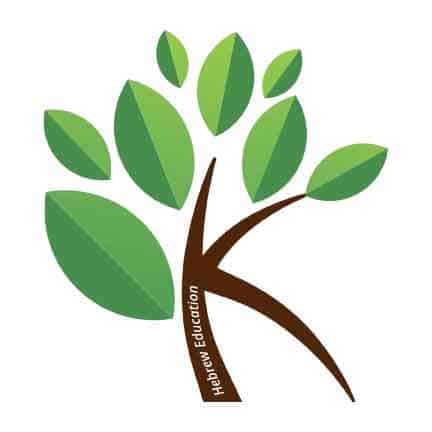It happened to me two years ago, but I remember it like it was yesterday. I was teaching my last class of the day, a rambunctious group of 4th grade boys. One of the boys asks me if “juke” is a word in English. I wonder if he means jukebox, then think about trying to explain what a jukebox is, then think maybe I should just say no, juke isn’t a word. Suddenly, another student yells out, “yes, it’s COCK!!”

I freeze and look at him, trying to figure out if this is an ignore-him-and-he’ll-stop situation, or if I should shut it down immediately before I lose the whole class.
He isn’t smirking, though, and I don’t see any malice in his face. Instead, he’s nodding seriously, and says again “it’s cock, yea juke is cock.” Then it hits me – the first boy was actually asking me how to say the Hebrew word “juke” in English, which is cockROACH! 🤦🏾♀️
I CRACK UP. “OH!” I finally respond, “you mean cockROACH” (emphasizing the roach), “yes, juke means roach, or cockroach, but really – you can just say roach. Roach is what we say.”
You wanna know what Boy #2 then says to me? “that’s what I said, cock! Roach, cock – mah zeh me’shaneh? what difference does it make?”

Aaaand this, ladies and gentlemen, is my introduction to 7 Hebrew phrases I’d be happy to never, ever, ever hear again.
#7: Mah zeh me’shaneh? [מה זה משנה]
Students loooooved asking “what does it matter?” anytime I said something contrary to what they thought (like cock vs. roach, or writing from left to right instead of right to left). Israeli children (Israelis really, but not the point of this post) question and push back on damn near everything, which is simultaneously maddening and entertaining. On the plus side, it did help me become much more conscious about the “why” behind what I was telling them.
#6: Efshar le’malot? [אפשר למלות]
Soon after walking into class, I’d be swarmed by students hugging me, asking for selfies (“efshar selfie?”), and of course, as in classrooms in the states and probably all over the world, students who just HAVE to use the bathroom (“Pliz, pliz, hamorah, pliz pliz!”) even though they JUST came from recess. Another common request was, “efshar le’malote” – can I fill [my water bottle?]. The only thing is – le’malote is not a word! The verb is LE’MALEI! When I repeated le’malei as a correction, about half the kids would respond with – of course – “mah zeh me’shaneh?”

#5: Ani lo mevin klum! [אני לא מבין כלום]
Learning a new language like English, which is so different from Hebrew, can be challenging, intimidating, and downright scary. (And if you’re an English speaker learning Hebrew, then you get what I mean!) Some students were closed off from the very beginning; I had hardly opened my mouth before hearing “Ani lo mevin klum!” I don’t understand anything! My response was an exaggerated “maaaahhhhhh? ein davar kazeh” – whaaaaat? there’s no such thing! Then we generated a list of just how much English the students already new, thanks to loanwords/cognates: pizza, jacket, student, salad, mango, X box, fox, cat, FIFA, and the list goes on. We’d repeat this exercise every few months, just as a reminder that “atah kein mevin” – yes, there’s plenty that you do understand.
#4: Me’eifoh ani yodaat? [מאיפה אני יודעת]
Imagine spending an entire 45 minutes teaching just one topic. You prepare some amazing activities, the kids are super engaged, no one is faking bathroom emergencies, and the period is coming to an end. You end with a quick review, asking a question that was asked and answered 603,550 times during the class, only to be met with an angry “me’eifoh ani yodaat?” “how should I know?” And you’re like ummm FROM THE LAST 45 MINUTES OF MY LIFE THAT I WILL NEVER GET BACK. Why do you treat me like this?!

#3: Aval lo hitamanti! [אבל לא התאמנתי]
In my school, tests had to be scheduled at least a few weeks in advanced on a shared calendar, and couldn’t be scheduled on the same day as another exam. Despite knowing the test date way in advance, and having no other tests to study for, my students would hit me with the “Ani lo mevin klum,” “me’eifoh ani yodaat?,” and the funniest one, “aval lo hitamanti!” “But I didn’t study!” I’m sorry to hear that, I really am…now clear everything off your desk except a pencil and eraser, because we 👏🏾 have 👏🏾 a 👏🏾 test 👏🏾 today.
#2 & #1: Ein li koach [אין לי כוח] and lo ba li [לא בא לי]
“Ein li koach” is the Hebrew equivalent to, say, “I’m not up to it,” and, “I can’t be bothered.” Literally, it means “I don’t have power,” as my amazing co-teacher Hodaya used to say. It is one of the classic Israeli students’ response to anything you request/require of them that they don’t feel like doing – like, ya know, learning. The other response is “lo ba li” – “I don’t feel like it.” That’s when I hit them with the, listen, lo ba li to come to work today but here I am, and here you are, so I’m going to teach and you’re going to learn…nequdah – period.

Of course my school year was filled with much more than these maddening phrases. There was the excited “at itanu?” You’re with us? – as I walked into class. There was the “zeh hayah keif” that was fun – after lots of successful lessons. There was the “hi teacher, thank you very much” from students I didn’t know who just wanted to say something to me in English. There was the hopeful “shana habaah at mlamedet otanu?” are you teaching us next year? followed by lots of pleases and lama los (why nots). There was the genuine appreciation of the principal, the unending helpfulness of the homeroom teachers, the gifts and the cards for my birthday, for Purim, for just being there. The experience as a whole was like none I’ve ever had, and I can’t wait for my next Israeli adventure.
Don’t let me hear any of these damn phrases though, or it’s on!



Todah Rabah for sharing your experiences and the phrases with us! I’ll be using some of the phrases when I go to visit my family out of state, next month! My nephews give me their googly-eyed look when I speak to them in Ivrit. They don’t get a Jewish education at home, so I try to sneak in some of my coveted knowledge with hopes that it will spark their Yiddishkeit!
I really hope you hear worse phrases next year. Hahahaha I enjoyed your post.
I enjoyed reading this and learned some new hebrew phrases as well 😀
you are a good teacher. keep up.
Thank you, Fred!
I was a primary schoolteacher and principal for 40 years so I have lots of funny language stories from American students living “in poverty “. I dedicated my life to immigrant children learning English and loved most of it except the circumstances.